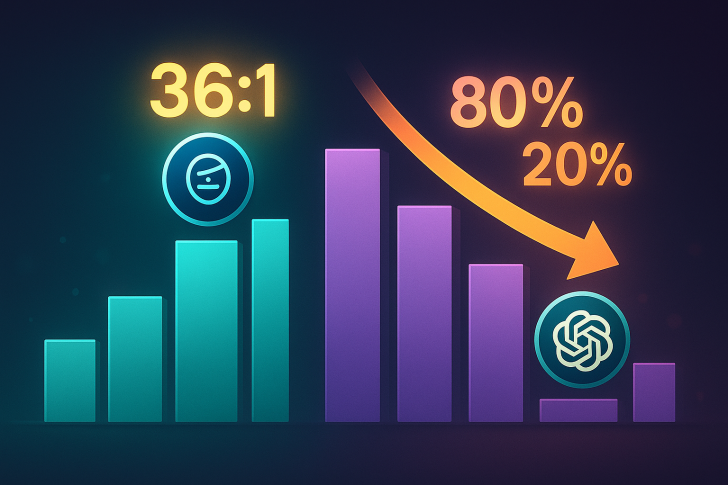⬤ Grok is picking up serious steam in the AI race, with recent social commentary painting it as a real challenger to ChatGPT's dominance. The buzz centers on actual business performance, where Grok reportedly delivers a 36:1 return on content creation versus what some users call ChatGPT's "word salad and weak summaries." Marketing teams are making the switch, and the numbers tell the story: users who once relied on ChatGPT for 80% of their work have dropped that figure below 20%, moving to Grok for results they describe as faster, funnier, and sharper.
⬤ Beyond marketing, Grok's multimodal features and crypto simulation capabilities are turning heads, with claims of "pinpoint market bottom calls" that hit the mark. Meanwhile, ChatGPT's market share has slipped from 87.1% to 72.3% over the past year, even though it still leads the pack. Competing platforms like Gemini, Claude, and Grok are carving out space in enterprise settings, research labs, and regulated sectors. The narrative positions Grok as a "scalable AI weapon" that blends humor with precision, and suggests that without a shift from OpenAI, Grok could move from threat to default.
⬤ Adding to the momentum, xAI rolled out Grok 4's EVE voice mode, which is getting rave reviews for its British accent and natural delivery. Elon Musk called it "beautiful," and users are praising EVE as the best voice mode available, with response times cut roughly in half and prosody that feels genuinely human. EVE can even handle opera-style singing, turning interactions into fluid conversations that feel less like commands and more like chats with a witty, charming companion.
⬤ Together, these developments paint Grok as a fast-evolving competitor combining strong business ROI with engaging features like EVE's voice mode. The shift highlights how user preferences, performance perception, and standout capabilities are reshaping the AI landscape and intensifying competition among major platforms.
 Sergey Diakov
Sergey Diakov

 Sergey Diakov
Sergey Diakov


